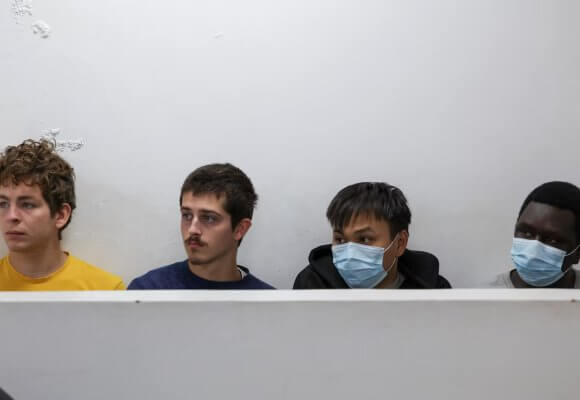|
LISTEN TO THIS THE AFRICANA VOICE ARTICLE NOW
Getting your Trinity Audio player ready...
|
On the night of November 1st, a familiar yet devastating tragedy struck in the Comoros Sea, as at least 25 migrants—among them women and young children—lost their lives after traffickers reportedly forced their boat to capsize in a desperate bid to evade authorities. The incident underscores the deadly cycle faced by thousands who brave the perilous passage from Comoros to the French territory of Mayotte, risking everything in search of a better life.
This tragedy unfolded between the island of Anjouan, part of the Comoros archipelago, and Mayotte, a French overseas department. The survivors, rescued by local fishermen on Saturday morning, described a harrowing journey cut short when traffickers, fearing capture, forced the small fishing vessel to capsize. About 30 people were aboard, most Comoran nationals, though other nationalities were present. This route has witnessed countless similar incidents over the past decades, with traffickers often using flimsy boats, known locally as “kwassa-kwassa,” ill-equipped for the dangerous waters.
For many Comorans, the journey to Mayotte is seen as an escape from poverty. Comoros, one of the world’s poorest nations, has limited infrastructure and basic services. Nearly half of its population lives below the poverty line, and healthcare access remains sparse, especially in rural areas. Mayotte, despite being the poorest French department, offers basic amenities and welfare services that make it a beacon of hope for Comorans seeking a new beginning. But this difference has come at a high human cost: the treacherous crossing from Comoros to Mayotte has claimed thousands of lives, turning the sea route into a graveyard for hopeful migrants.
A report by the French Senate revealed that between 1995 and 2012, an estimated 7,000 to 10,000 people died attempting to make the journey. The International Organization for Migration (IOM) fears that actual numbers may be much higher, especially with recent incidents in August and September—one involving eight deaths, including a 12-year-old boy, and another where 12 passengers, including an expectant mother, disappeared without a trace.
The political history of these islands has also contributed to the crisis. Formerly a French colony, the Comoros archipelago gained independence in 1975, but Mayotte chose to remain a part of France. This decision created a stark contrast in living standards, leading many Comorans to see Mayotte as their best hope for opportunity, despite the inherent risks.
The French government faces mounting pressure to address the migration crisis. Mayotte, with a population of about 320,000, is now home to thousands of migrants, nearly half of them undocumented, according to recent French statistics. Comorans make up 95% of this migrant population, with many staying in precarious conditions.
The IOM and local organizations have called for urgent action, highlighting the need for both improved maritime safety and socio-economic support for the Comoros Islands. Human rights groups argue that without meaningful intervention, tragedies like the November 1st incident will continue unabated, driven by desperation and lack of alternatives.











LEAVE A COMMENT
You must be logged in to post a comment.